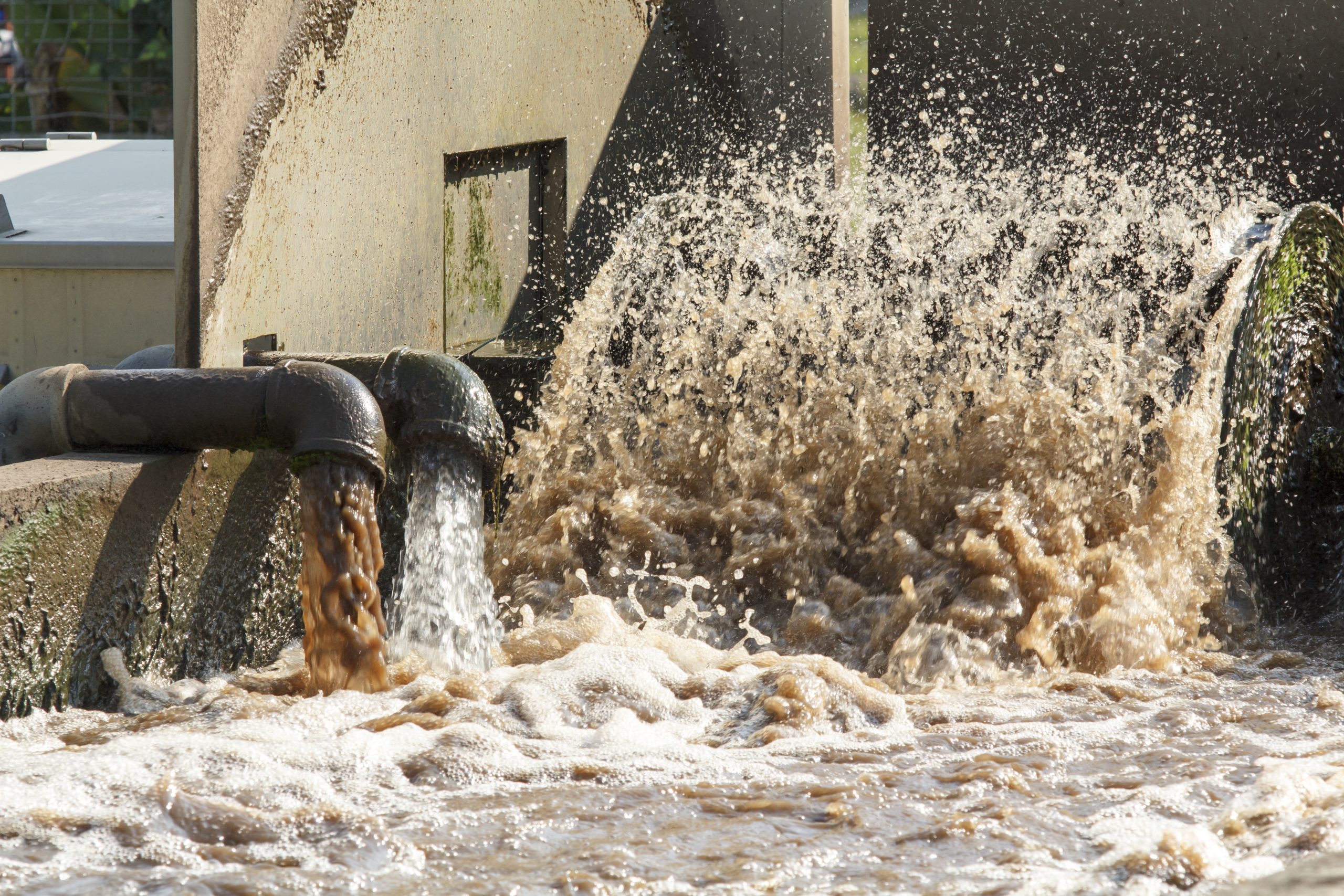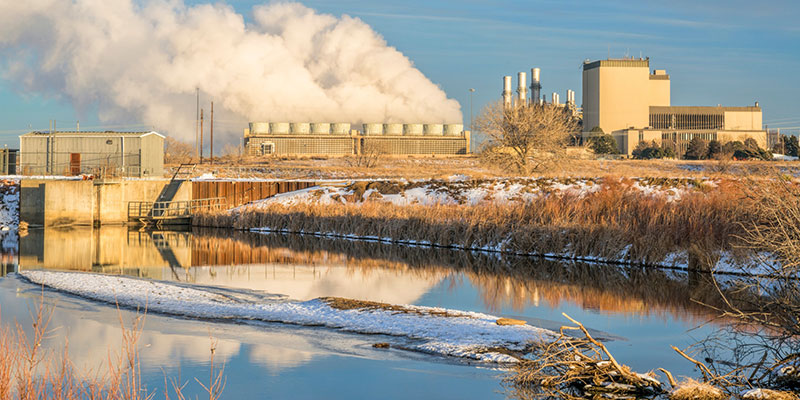Industrial Waste Water Treatment-- Tailored Solutions for Effective Wastewater Treatment
Industrial Waste Water Treatment-- Tailored Solutions for Effective Wastewater Treatment
Blog Article
The Function of Industrial Waste Water Treatment in Environmental Protection
The efficient therapy of industrial wastewater is progressively recognized as a foundation of environmental protection, serving to mitigate the detrimental effects of pollutants on marine communities. As sectors broaden and develop, the need for robust wastewater monitoring solutions becomes extremely important to guarantee conformity with ecological guidelines and advertise sustainable techniques. This necessitates a better exam of the therapy processes used and their effects for both environmental wellness and resource recuperation. Comprehending these characteristics raises essential concerns concerning the equilibrium between commercial growth and ecological stability, motivating further expedition of the paths forward.
Significance of Waste Water Therapy
The value of wastewater treatment can not be overstated, as it plays an essential function in shielding public wellness and the atmosphere (Industrial Waste Water Treatment). Efficient wastewater treatment systems are essential for eliminating impurities from commercial discharge, thereby avoiding damaging materials from entering all-natural water bodies. This procedure minimizes the threat of waterborne diseases, which can emerge from neglected wastewater, and safeguards community health
Furthermore, treated wastewater can be safely recycled in various applications, such as watering and industrial processes, promoting lasting water management practices. By reusing water, markets can considerably decrease their freshwater intake, adding to resource preservation.
Along with health and wellness advantages, wastewater treatment is essential for maintaining marine ecosystems. Pollutants in without treatment wastewater can bring about the deterioration of water high quality, damaging water life and disrupting eco-friendly balances. By dealing with wastewater before discharge, markets help preserve the stability of regional environments and promote biodiversity.
Additionally, regulative compliance is a vital element of wastewater management. Sticking to established ecological standards not only stays clear of lawful consequences yet also enhances a company's online reputation as a liable corporate resident. In essence, reliable wastewater treatment is crucial for guarding public health and wellness, protecting the atmosphere, and promoting lasting commercial techniques.

Resources of Hazardous Waste Water
Industrial wastewater stems from a range of resources, each adding to the complexity of treatment processes. Predominantly, these resources consist of making centers, refineries, and processing plants, which produce effluents as a result of their procedures. Industries such as textiles, drugs, food and beverage, and petrochemicals produce considerable volumes of wastewater, often packed with impurities including hefty metals, organic substances, and nutrients.
Along with manufacturing, farming tasks contribute to commercial wastewater with runoff and effluent from livestock procedures and crop handling. The meat and dairy markets, specifically, are recognized for releasing high levels of biochemical oxygen demand (FIGURE) and virus.
Additionally, mining and mineral handling tasks create wastewater containing put on hold solids and hazardous chemicals. Power generation plants, especially those using fossil fuels, likewise add wastewater via cooling down systems and chemical cleansing processes.
Each of these sources provides special obstacles regarding the structure and volume of wastewater generated, requiring customized therapy options to mitigate their ecological effect. Understanding the diverse origins of commercial wastewater is vital for creating effective monitoring approaches targeted at protecting water sources and promoting sustainable commercial methods.
Therapy Processes and Technologies
Efficient therapy procedures and modern technologies are critical for managing commercial wastewater and mitigating its ecological effect. Various methods are utilized to get rid of pollutants, adapt to different wastewater characteristics, and follow regulative standards.
Physical therapy processes, such as sedimentation and filtration, help with the elimination of put on hold solids. These methods are frequently utilized as preliminary steps to minimize the tons on succeeding therapy stages. Chemical therapy, including neutralization, coagulation, and flocculation, addresses dissolved toxins by modifying their chemical residential or commercial properties, making them simpler to separate from water.
Organic therapy innovations, such as triggered sludge systems and biofilters, utilize microorganisms to degrade organic issue and nutrients. These methods are particularly effective for naturally degradable waste streams, advertising the natural disintegration procedure. Advanced therapy innovations, such as membrane layer filtering and progressed oxidation processes, offer improved removal effectiveness for challenging pollutants, including hefty steels and consistent natural substances.
Each of these therapy procedures can be set up in different combinations to create customized options that meet particular industrial needs. The selection of modern technology depends upon aspects such as the kind of wastewater, desired treatment results, and economic considerations, making certain that markets can operate sustainably while minimizing their eco-friendly footprint.
Ecological Advantages
Carrying out robust wastewater treatment processes not just makes sure conformity with governing standards but additionally produces considerable environmental advantages. Reliable treatment of industrial wastewater reduces the discharge of damaging pollutants into all-natural water bodies, thereby securing water environments. By getting rid of harmful compounds, i thought about this heavy metals, and microorganisms, these procedures assist keep biodiversity and promote healthier communities.
In addition, dealt with wastewater can be repurposed for different applications, consisting of irrigation and industrial processes, decreasing the need for fresh water sources. This reuse not only saves water yet likewise reduces the tension on local water supplies, which is especially critical in water-scarce areas.
Furthermore, efficient wastewater therapy alleviates the risk of dirt and groundwater contamination, making sure the stability of neighborhood atmospheres. Industrial Waste Water Treatment. By avoiding the infiltration of unsafe materials, industries add to the overall health and wellness of surrounding ecosystems and areas, enhancing public trust and cultivating lasting industrial methods
Regulatory Structure and Compliance
A detailed regulative framework regulates the treatment of commercial wastewater, making certain that markets follow stringent compliance criteria. Different national and neighborhood guidelines, such as the Clean Water Act in the United States, set forth limits on the discharge of toxins into water bodies. These laws are made to safeguard marine ecosystems and public wellness by mandating that markets implement proper treatment innovations.
Compliance with these guidelines typically entails acquiring authorizations, conducting normal surveillance, and reporting discharge degrees to regulatory authorities. Failure to conform can cause significant penalties, including fines and functional limitations, therefore incentivizing markets to take on ideal methods in wastewater administration.
Along with governmental laws, lots of industries additionally abide by voluntary criteria and accreditations, such as ISO 14001, which advertise sustainable environmental administration practices. Stakeholders are increasingly promoting for boosted transparency and responsibility in wastewater administration, pushing for more stringent enforcement and even more rigorous coverage demands.
Eventually, a robust regulatory structure not the original source just serves to reduce ecological risks however additionally fosters a society of sustainability within the commercial market, motivating continual enhancement in wastewater treatment procedures.
Verdict

The efficient treatment of commercial wastewater is significantly recognized as a cornerstone of environmental security, serving to reduce the harmful effects of pollutants on aquatic ecosystems. Effective wastewater therapy systems are crucial for eliminating impurities from commercial discharge, consequently preventing unsafe materials from getting in natural water bodies.Industrial wastewater originates from a variety of sources, each adding to the intricacy of treatment processes. Reliable therapy of industrial wastewater reduces the discharge of hazardous contaminants into natural water bodies, thereby protecting aquatic environments.In conclusion, industrial wastewater therapy is important for guarding environmental honesty and promoting sustainable water monitoring.
Report this page